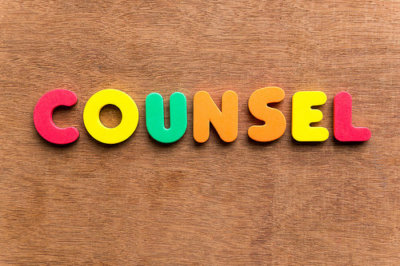Counselling Sessions – What Can You Really Expect?
 What is a counselling session really like? Is there a certain structure to the session, what does the therapist ask the client? How does it actually help you? These are questions we are often asked at Harley Therapy. So we asked one of our expert psychotherapists in Harley Street, London, Michelle Bassam, to shed some insight and tell us just what a client could expect from a counselling session with her.
What is a counselling session really like? Is there a certain structure to the session, what does the therapist ask the client? How does it actually help you? These are questions we are often asked at Harley Therapy. So we asked one of our expert psychotherapists in Harley Street, London, Michelle Bassam, to shed some insight and tell us just what a client could expect from a counselling session with her.
Michelle Bassam has been practising since 2001. Her MA is in Counselling and Psychology and she has Diplomas in Psychosexual Therapy and Relationship Therapy, Psychodynamic Therapy, and Cognitive Behavioural Therapy. She sees clients face to face in London and also offers online therapy and telephone counselling.
Keeping in mind that no two counselling sessions are ever exactly the same- every therapist has their individual style and a different set of training experiences, and every client is of course also unique- this is what Michelle had to say.
Why do people come to counselling?
People come into counselling for many reasons. They come because they are seeing behaviour in themselves that they have not experienced before. Or they don’t like the way they are reacting to their partner in a negative way, or the general public, for example on public transport something feels not quite right. They come to counselling because they are feeling mentally unsettled. There are issues that are going on in their life that are causing them to feel a disruption within; in their soul or mind they are unhappy. Possibly they are going down the route of depression or feeling anxiety about something they are about to face. Or they are overstressed.
Is needing counselling a sign of weakness?
It’s the very strong ones that come to counselling because it can be very demanding. You are giving up time and you’re actually committing that time to yourself and making yourself hopefully feel better through this process.
What is the point of seeking counselling?
 I always feel that people are like an onion. We slowly peel back each layer of the onion, get to the core, and then are able to lift ourselves and to feel that we are a good solid person. We then are able to project that, and happy people draw happy people. When we put out that pleasantness to the world we can actually receive it back. And when we have a good self-esteem this is what happens. We learn all this in the counselling room.
I always feel that people are like an onion. We slowly peel back each layer of the onion, get to the core, and then are able to lift ourselves and to feel that we are a good solid person. We then are able to project that, and happy people draw happy people. When we put out that pleasantness to the world we can actually receive it back. And when we have a good self-esteem this is what happens. We learn all this in the counselling room.
How do you know you are with the right counsellor for you?
You want to feel as you enter the room that you are the most important person, not that the therapist is doing a job and you are just another client. I would really be very sad if any of my clients ever felt that. YOU are the important one!
Okay, so I have decided to try a session. What happens next?
You ring our team. Once you book a session you will be sent some information regarding Harley Therapy and a questionnaire about yourself, a few personal details. And you’ll be asked to fill out a short form to see if there is a possibility you are depressed, and asked a few questions about what you feel you are coming to therapy for, and most importantly what you hope to get out of therapy. If you haven’t got any idea that’s perfectly okay.
So I show up for my first session. What happens?
My clients come in, take a seat, and pass over their paperwork. Once that door is closed and you are sitting nice and comfortably, it’s the therapist who should make you feel able to relax, and able to speak whenever you feel ready to speak. You shouldn’t feel rushed through. Remember, you are the important one.
I just browse through the paperwork for a basic idea and put it to one side as it’s you that is important. We are then ready to embark on some question and answering, but I am not going to turn around and say how does this or that make you feel or give you advice, I wait for it to come from you.
So what do you ask in the way of questions in the first session?
I ask clients questions about things that affect mood, like alcohol and drug use. And we go through basic questions about family, if they are married, or in a relationship, how they see that relationship. If the relationship creates a lot of stress for them, or they self harm because the partnership creates low self-esteem, we start looking at those sorts of things. It gives me an overview to see how we can progress in the future.
I ask how their relationships are with their parents, too, and if their parents are still in this country. I ask what they do for a living, and what their partner or husband and wife does for a living, to see what kind of stress they have from outside their relationship. I want to find out how my client is outside the therapy room. The more information the client can give me, the more I am going to be able to interact with them and hopefully help them through.
How do I know I can trust a counsellor?
Everything is confidential that a client brings into the room. I explain to all my clients that whatever they say stays within the walls and I don’t discuss it with reception or when I go home in my everyday life. Legally in this profession we have to go to supervision and I explain to clients about this, that if I have something that might be troubling me or I would like a different viewpoint on, I would take that issue to my supervisor. But I won’t be mentioning names or anything else and being supervised enhances the work I do with my clients.
Does Michelle take notes? Do you have to talk about suicidal feelings in a counselling session? How does Michelle determine how she’ll work with you after the first session? What if her clients don’t think she’s the right therapist? Find out answers to all these questions and more by WATCHING THE VIDEO INTERVIEW.
If Michelle sounds like the right counsellor for you, why not book a session with her?
If you have any comments or questions about this article, do post below, we love hearing from you.






I have just started counselling, I’m not sure what to expect and what i should gain from this. There are many issues for me attending and am staring to think my counsellor isn’t prepared for many issues rather than one.. how do I know and what should I expect/ be asking?
Many thanks
Hi Michelle, give it time. It’s normal to feel weird and question everything when you first start counselling. But remember, you spent your entire life building those issues, so they will take time to unravel! Think of therapy like a relationship. Just like when you meet a new friend you can’t expect them to understand you in a few meetings, a therapist needs time to understand you and your issues. In fact it can be a sign they are a good therapist they are not pushing you to reveal all at once, but are perhaps seeing sensitivities and anxieties you yourself don’t realise you have, and are working to allow your issues to come out in a way they feel is safe and beneficial for you. Also, think about trust. Do you often have troubles trusting others to understand you? If so, the same pattern will play out in a therapists office. Of course not all therapists are good at what they do or right for everyone! If, after about 4 sessions, you just don’t feel that you can ever trust them, have a chat about it. We have many other articles on this subject- use the search bar to find the ones called, “Don’t Like Your Therapist? Before You Panic, Read This”. “Help! I Want to Fire My Therapist”, “I Hate My Therapist”, and “What If I Don’t Trust My Therapist”. Good luck, and good for you for starting counselling, by the way.